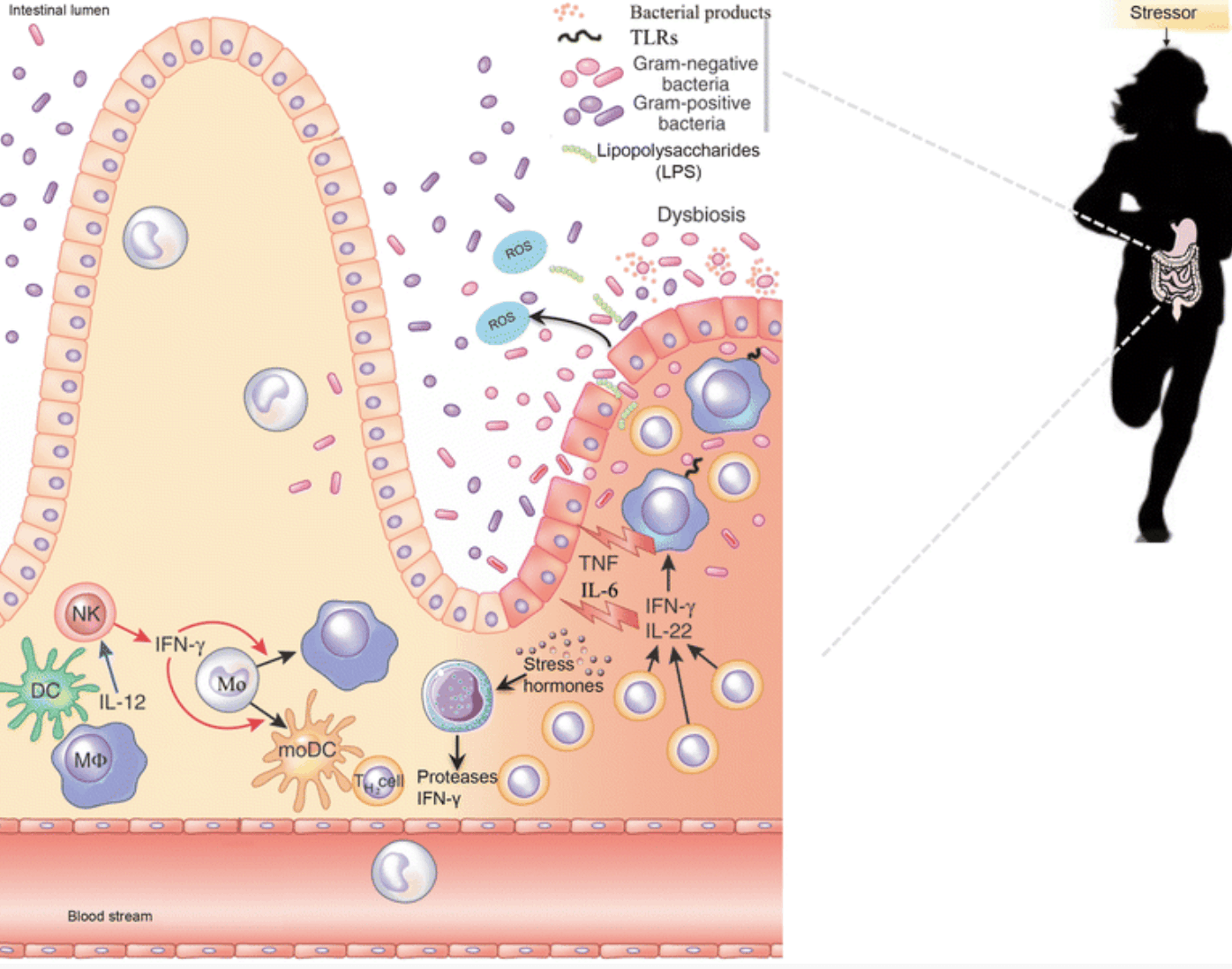*Disclaimer: I am not a doctor! This information is not meant to diagnose or treat*
Blood Sugar and Hormone Connection
Blood sugar regulation is imperative for adrenal health. Our adrenal glands signal the pancreas to release glucagon or insulin. When we ride the blood sugar roller coaster (high highs and low lows) our adrenals are constantly on alert, trying to get your blood sugar lower or bring it back up! This can exhaust them! That’s why symptoms of blood sugar dysregulation include fatigue, dizziness, waking up in the middle of the night and so on.
Learn to Eat for Hormone Health in this video.
What Came First, The Stress of the Health Issues?
Chronically elevated cortisol can lead to insulin resistance, and insulin resistance can lead to chronically elevated cortisol. It is also thought that insulin resistance is a major contributing factor to polycystic ovarian syndrome (PCOS), which makes sense because insulin resistance causes increased testosterone in women. Chronically elevated cortisol also impairs the liver’s abilities of conjugating excess hormones and removing them from the body.
Stress also contributes to leaky gut in few ways. Being in fight or flight mode impairs the digestive process, and maladjusted foods make it to the gut, which can harm the lining and cause inflammation. Stress causes elevated LPS in the gut which as Ali Miller RD puts it, makes swiss cheese out of your gut lining.
Proper intestinal barrier function is crucial for maintaining immune and overall health. There are more than 50 proteins that play an important role in regulating the tight junctions of the mucosal endothelial layer and thus intestinal permeability (source).
Can Over Training Be a Stressor?
While I love to exercise, I think many people today, in efforts to lose weight over train and under eat, or just train in the wrong way. While some level of stress is good for the body, chronic stress is no-go.
This study shows how frequent high-intensity training can damage the gut:
‘Intense exercise over a prolonged period of time increase stress hormones and lipopolysaccharides (LPS) translocation in the gastrointestinal tract, which triggers immune responses that often result in increased pro-inflammatory cytokines and intestinal permeability. Additionally, intestinal permeability may be made worse by the increased production of reactive oxygen species (ROS) and by the alteration of gut microbiota composition and activity (the so-called dysbiosis). Furthermore, the gastrointestinal tract responds to stress by releasing hormones such as GABA, neuropeptide Y (NPY) and dopamine that have been purported to cause GI disturbances, anxiety, depression, reduced food intake, and less stress coping.”
What’s Insulin Resistance?
Insulin resistance occurs when the body cannot use carbohydrates efficiently. Normally when carbohydrates are ingested, they’re broken down into glucose and shuttled into the bloodstream. Blood sugar rises and insulin is secreted by the pancreas to move this glucose into cells, which it will use for energy or stored as glycogen. As insulin moves glucose from the bloodstream into cells, blood sugar returns to normal.
However, when you are insulin resistant, your body is resistant to insulins’ message, the pancreas secretes more insulin to get the cells to listen. Eventually, the pancreas wears out and can’t produce enough insulin to keep blood sugar stable. The blood sugar is chronically elevated, and when it gets high enough you’re diagnosed with Type 2 diabetes. Increased levels of glucocorticoids lower TSH. (Made Whole, 2018).
Increased levels of glucocorticoids lower the levels of TSH in the blood. A delicate balance between stress hormones and cortisol must exist for proper thyroid function (link).
What’s Pregnenelon Steal?
Pregnenolone steal happens when the adrenal glands steal or borrow progesterone, a hormonal precursor, to keep the cortisol (flight or flight) response going. This will keep pregnanolone from producing DHEA (dehydroepiandrosterone is an endogenous steroid hormone), and use it for cortisol which creates an imbalance of sex hormones in the body. While the majority of dominant sex hormones are produced in the ovaries or testes, non-dominant hormones are produced in the adrenals. This new pathway supports the cortisol response at the expense of natural adrenal pathways, reproduction, and your base metabolic rate. (source)
Pregnenolone steal causes hormone imbalance, downregulated metabolism and adrenal fatigue, which feeds into the insulin resistance that can cause further hormonal imbalance and the liver that is too taxed to clean up the mess.
All of which can lead back to the thyroid, causing low T4 and T3 levels and impairing the conversion of T4 to T3, which can cause higher levels of reverse T3. Stress, blood sugar regulation, and endocrine health are a delicate balancing act.
I’ll be writing more on eating to nourish the endocrine system, and foods to help you manage stress! An area of growing interest to myself, I truly believe the key to true health lies in finding a healthy balance between creating change in the body, while supporting it, so it does not fall into a chronic stress state.








Richard says
Excellent article!This confirms my ongoing victory over type 2 diagnosis by dietary and lifestyle change.
Adil Naki says
This is really a wonderful article. I figured a lot from it. Now I know why I am depressed and have T2D.
Heather C Cole says
I just wanted to say I am a big fan! I love how you have taken you personal journey and helped to make it into a road map for others. There was not a darker time in my life then dealing with food intolerances and digestive distress and not knowing what to eat. You open up the possibilities (and bring happiness back) to those experiencing the same. I am a fellow NTP student, graduating also in June, in the Tampa class. So humbled to be an NTP with you!
Cristina says
Thank you so much Heather!! I’m moving to Tampa in a few years, we’ll have to meet up!!